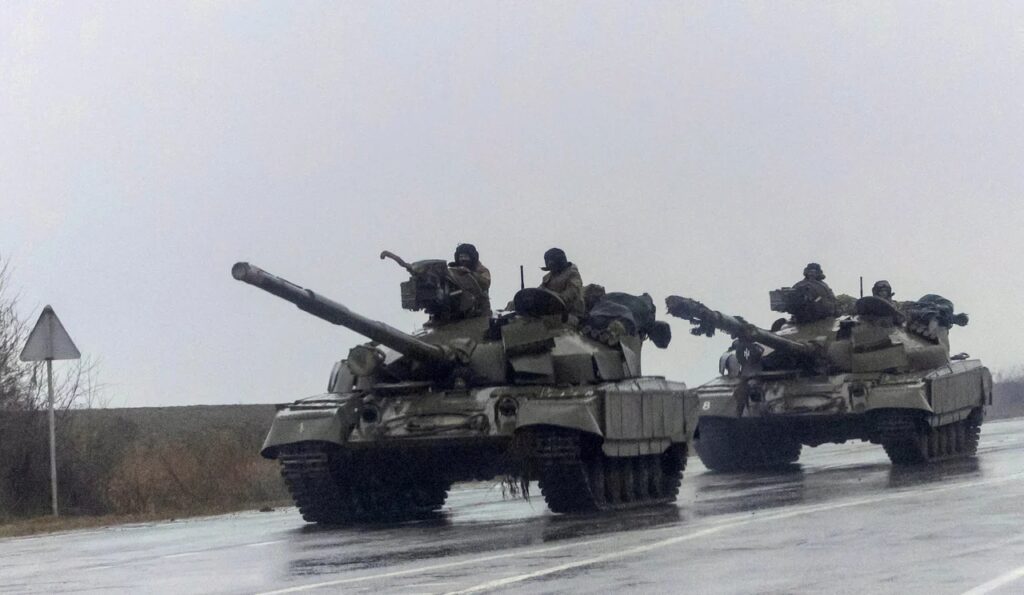
While refraining from directly criticizing Russian President Vladimir Putin, the two billionaires, Mikhail Fridman and Oleg Deripaska, issued a call for peace in Ukraine and a cessation of violence
Jewish billionaires Mikhail Fridman and Oleg Deripaska have become the first Russian oligarchs to publicly express unhappiness with President Vladimir Putin’s invasion of Ukraine, calling for “peace” and an end to the “bloodshed.”
Though neither man directly criticized Russia’s leader, they were the first high-profile businessmen to voice any criticism of Putin’s actions. Their businesses face Western sanctions due to the invasion.
Fridman, a dual Russian-Israeli citizen and prominent philanthropist in Jewish and Israeli causes, sent an email to employees of his private equity firm LetterOne last Friday, which was subsequently published in the Financial Times. He called the conflict a “tragedy” and expressed a “fervent desire for the bloodshed to end.”
He continued: “I am a businessman with responsibilities to my many thousands of employees in Russia and Ukraine. I am convinced however that war can never be the answer. This crisis will cost lives and damage two nations who have been brothers for hundreds of years.”
Fridman sits on the board of Russia’s largest private bank, Alfa Bank, which he also co-founded. It could suffer tremendously if Western sanctions against Russia tighten and it is denied access to the SWIFT international banking payment system.
“While a solution seems frighteningly far off, I can only join those whose fervent desire is for the bloodshed to end,” he added.
Fridman is one of the wealthiest men in both his countries of citizenship. Forbes ranked him as the 128th richest person in the world in 2021, with an estimated net worth of $12 billion.
He qualified his views in the email by noting that he did “not make political statements,” since he is “a businessman with responsibilities to my many thousands of employees in Russia and Ukraine.”
He noted that he “was born in Western Ukraine and lived there until I was 17. My parents are Ukrainian citizens and live in Lviv, my favorite city. But I have also spent much of my life as a citizen of Russia, building and growing businesses. I am deeply attached to Ukrainian and Russian peoples, and see the current conflict as a tragedy for them both.”
Fridman is also a co-founder of the Russian Jewish Congress and co-founder and trustee of the Genesis Philanthropy Group, which donates to a long list of causes in Israel and across the Jewish world. These include the Yad Vashem Holocaust memorial and museum in Jerusalem, the Birthright-Taglit organization that provides free, 10-day trips to Israel for Diaspora Jews, Hillel International and Friends of the IDF.
Fridman and his business established the Genesis Prize in 2012. Branded as the “Jewish Nobel,” the award is given to high achievers “for their accomplishments and commitment to Jewish values.”
On the same day Fridman’s email was published, aluminum and energy tycoon Deripaska posted on his Telegram channel that “peace is very important! Negotiations have to start as quickly as possible!”
Deripaska made his fortune in metal trading, founding Russian Aluminum (RusAl), the second largest aluminum exporter in the world, and today holds a stake in the aluminum and energy holding En+ Group.
In the past, Deripaska – whose wealth has been estimated at $4 billion – has helped finance educational programs administered by the Jewish Federation in Russia. He is the founder of Russia’s largest charitable foundation.
Sanctions are nothing new to him. In 2018, the U.S. Treasury put him on a list of “specially designated nationals,” noting that he “has been investigated for money laundering, and has been accused of threatening the lives of business rivals, illegally wiretapping a government official, and taking part in extortion and racketeering. There are also allegations that Deripaska bribed a government official, ordered the murder of a businessman and had links to a Russian organized crime group.”
The Trump administration later lifted the sanctions on his companies, though Deripaska remains personally blacklisted. He has told journalists that the sanctions cost him $7.5 billion.
Deripaska also faced scrutiny in the United States for his financial dealings with Paul Manafort, who was one of Donald Trump’s campaign managers during the 2016 presidential election race. This prompted allegations that he had served as a financial pipeline for Russian meddling during that campaign.
He later declared himself vindicated by special counsel Robert Mueller’s 2019 investigation, which found no evidence of collusion between the Russian government and the Trump campaign.
